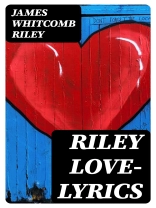In ‘Riley Love-Lyrics, ‘ James Whitcomb Riley masterfully captures the essence of romantic sentimentality through a rich tapestry of verses that evoke emotions of love, longing, and devotion. Composed during the late 19th century—a period marked by a burgeoning interest in regionalism and the folk voice—Riley’s poetry showcases his signature folksy dialect and musicality. The collection reveals the intimate and tender moments of love, often interwoven with themes of nature and nostalgia, which resonate deeply with readers and place Riley firmly within the pantheon of American literary traditions. James Whitcomb Riley, often hailed as the ‘Hoosier Poet, ‘ emerged from the American Midwest, imbibing local dialects and cultural nuances that influence his work. His humble beginnings and connection to rural life provided a profound understanding of love’s complications and joys, which are beautifully rendered in this collection. Riley’s ability to articulate the innermost feelings of his subjects lends a universal quality to his poetry, inviting readers from all backgrounds to partake in the emotional landscape he created. This collection is highly recommended for anyone who appreciates the lyrical and emotive power of poetry. ‘Riley Love-Lyrics’ not only offers a window into the heart of a bygone era but also serves as a poignant reminder of the timeless nature of love. Readers will find themselves charmed and captivated by Riley’s lyrical prowess and deep understanding of human affection.
Про автора
James Whitcomb Riley, born on October 7, 1849, in Greenfield, Indiana, and passing on July 22, 1916, stood as a herald of the Golden Age of Indiana Literature, contributing notably to American poetry with his trademark use of Hoosier dialect. Riley’s upbringing in the heartland informed much of his work, weaving the simplicity of rural life into the fabric of his verse, which celebrated the ordinary and was suffused with a sense of nostalgia. His commitment to recreating the nuances of spoken language earned him the moniker ‘The Hoosier Poet.’ Among Riley’s significant contributions is ‘Riley Love-Lyrics’ (1899), showcasing his remarkable talent for infusing poetry with emotion and sincerity, solidifying his place in the pantheon of American literary figures. Riley’s style was characterized by its sentimentalism and use of rural subjects, an amalgam that resonated powerfully with readers of his time. While some critics have pointed out the limitations of sentimentality in terms of lasting literary significance, Riley’s work nonetheless remains a critical waypoint in understanding the development of American Midwest literature. His poetry continues to be celebrated for its linguistic authenticity, reflective of the vernacular of his Indiana roots, and remains an enriching study for scholars of American vernacular poetry.












